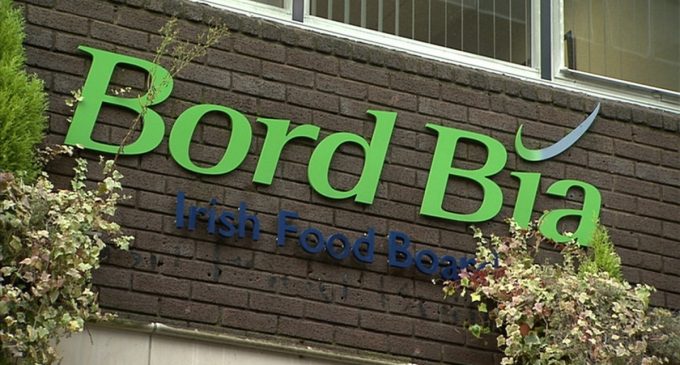Bord Bia unveils support measures for food, drink and horticulture businesses

Bord Bia unveils support measures for food, drink and horticulture businesses affected by COVID-19 as part of the Government Supports for Business
In response to the impact of the COVID-19 crisis on Ireland’s largest indigenous sector, Bord Bia announced details of its ‘Navigating Change’ COVID-19 marketing supports response strategy. The programme includes bespoke supports for producers and food and drink manufacturers, alongside the supports offered by the Department of Agriculture, Food and the Marine and Government Supports for Business.
These supports are framed by the publication of an expert report today detailing the extent and nature of the economic shock of COVID-19 disruption, informed by insights from Bord Bia’s markets and sectors teams and its global network. A new Navigating Change hub has been developed for the Bord Bia website where industry can access details of grants, up-to-the minute market insights, business supports, expert webinars and podcasts. Bord Bia has also announced a €1m marketing grant scheme for manufacturers to assist accelerate eCommerce and expand marketing activities in the context of rapidly changing trading conditions.
A key driver of the Irish economy, Ireland’s food, drink and horticulture exports reached a record €13 billion in 2019, delivering 67% growth in a decade*.
Launching Bord Bia’s Navigating Change COVID-19 response programme, Tara McCarthy, CEO Bord Bia, commented: “The Navigating Change supports are highly tailored to tackle the specific impacts the COVID-19 crisis is having on the Irish food, drink and horticulture industry. A core dynamic has emerged whereby food and drink companies are seeing a dramatic reduction in demand from foodservice customers countered by spiking demand in retail, for different products. At the same time, factory floor constraints, supply chain challenges and varying international market dynamics all have the potential to cause significant disruption. COVID-19 is an unprecedented challenge for our industry; the scale and enormity of the challenges we face are changing rapidly and so too must our supports. The Bord Bia team around the world is fully committed to supporting the food industry adapt to new market conditions to survive today and to reset with the ambition of winning again as markets recover.”
Bord Bia’s detailed Navigating Change report indicates COVID-19 is affecting all aspects of the Irish food and drinks industry, but the impact is very different across sectors;
Key trends identified are:
- Retail / foodservice see-saw effect: The foodservice industry is the most severely impacted, experiencing a near-total collapse in demand due to the temporary shutdown of the hospitality sector. Lost sales are running at an estimated €6.9bn for some of Europe’s largest foodservice markets (Germany, France, Italy and Spain). Retail and grocery, meanwhile, is experiencing dramatic increases in demand. However, with significant redundancies across Europe and the US, medium-term consumer spending in retail is projected to reduce from current peaks as consumers’ disposable income is potentially impacted.
- Sector impact: At producer level, the crisis is impacting on various sectors in very different ways. The beef sector is experiencing ‘carcass imbalance’ wherein consumer demand for lower value cuts like mince is increasing while demand for higher value steak cuts – often sold to foodservice restaurant customers – is falling sharply. Milk processing in the dairy sector is continuing under strict physical distancing procedures. Fall-off in demand in foodservice has been replaced by consumer demand through retail. Cold storage facilities for products is increasingly difficult and costly to obtain which may pose problems as the sector enters peak milking season. Prepared Consumer Foods manufacturers that are foodservice focused have been most strongly affected to date while retail sales have performed well in most cases, although some products have been affected by the focus on core products by retailers. Alcohol has witnessed a severe fall off in the on-trade and travel retail although some of this loss has been alleviated by a strong pick up in the off trade. A number of distilleries have commenced producing hand sanitisers over recent weeks to utilise capacity. Logistics remain one of the key challenges facing the seafood sector. It has become more costly to service export markets with many lorries only partially filled while getting products to Asia has become a major challenge due to the shortage of reefer capacity. The loss of the foodservice sector is negatively impacting on demand across Europe.
- China reawakening: As of last week, China’s economic capacity utilisation rate had recovered to 78% of pre-COVID-19 levels. While COVID-19 impacts are expected to linger into June, recovery is expected to be well under-way by the second half of 2020. 90% of foodservice outlets have reopened and the Bord Bia China team are tracking market movements closely.
Discover more about Bord Bia’s bespoke industry wide COVID-19 response for the food, drink and horticulture sector here

































